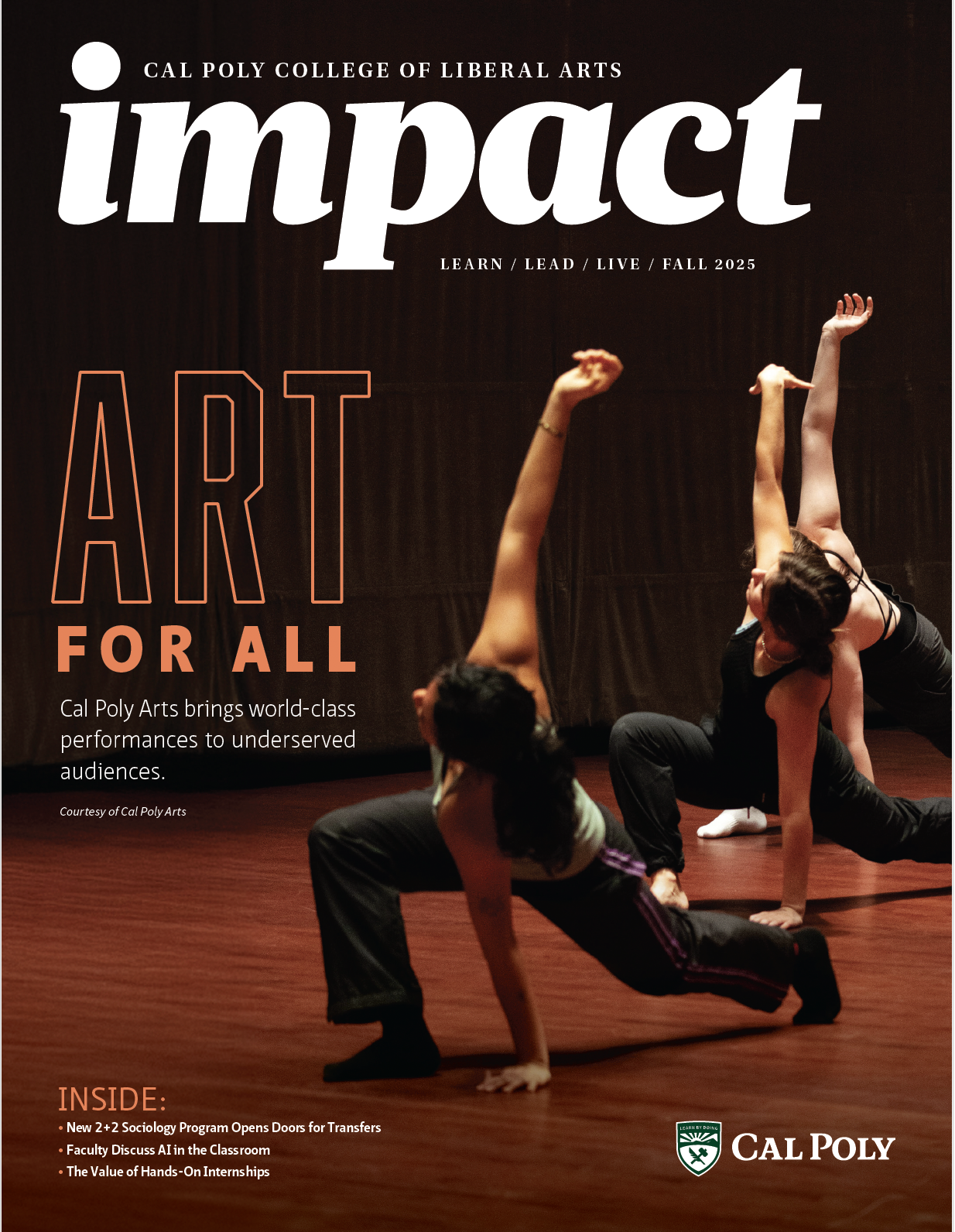New Books Unite Scholarship and Teaching for English Professors

Robert Inchausti's new academic work, published by SUNY, considers the particular relevance of Thomas Merton for modern times.
Memoir, mystery and Merton are the topics of new and forthcoming books by English professors John Hampsey and Robert Inchausti.
Professor John Hampsey — ‘Kaufman’s Hill’ and ‘Soda Lake’

Hampsey's new memoir will be
published in January 2015.
| Photo: Eric Johnson
Hampsey’s memoir, “Kaufman’s Hill,” will be released in hardcover in January 2015 by Bancroft Press. Set in Pittsburgh between 1961 and 1968, “Kaufman’s Hill” begins when the narrator is 7 years old. It focuses on the threshold period between the late 1950s and the counter-cultural world that arrived after 1968, as well as on the graphic yet mythical world of boyhood that vanishes into the twilight of adulthood. Each chapter, in fact, has a key scene occurring at twilight.

After the release of “Kaufman’s Hill,” Hampsey will focus on completing “Soda Lake,” an existential mystery novel mixed with imaginary portraits. The text follows the disappearance of a man at Soda Lake in Central California after a visit to Painted Rock, an ancient Chumash Indian site.
Hampsey received a 2014 CLA Summer Research Stipend to complete a key chapter of the “Soda Lake” manuscript. The chapter Hampsey is writing this summer is set in Donegal, Ireland, and was also supported through a sabbatical trip there in 2013 to gather geographical and cultural information.
Hampsey’s past and upcoming publications are tied in intimate ways with his teaching. “My teaching often informs my scholarship and publications,” said Hampsey. “In fact, much of the content of my last book, ‘Paranoia and Contentment, A Personal Essay on Western Thought,’ came directly from teaching classes on classical Greece, the British romantics and Victorians, and existentialism.”
Professor Robert Inchausti — ‘Thinking Through Thomas Merton: Contemplation for Contemporary Times’

Inchausti believes that Merton's life
makes a brilliant case for literary
education. | Photo: Chris Barr
Inchausti explores how spiritual contemplation can be relevant to contemporary society. Published in February 2014, his book centers on the spiritual life and thinking of Catholic Trappist monk Thomas Merton. Merton rejected the materialism of his society and advocated for a spiritual life as an alternative by creating a dialogue between Christianity, Buddhism and other world religions with modern thinking.
“Merton’s life is a first-person witness and commentary on the re-discovery of spirituality in the 20th century. But he also keeps his literary love of irony, paradox and image with him throughout this journey,” Inchausti said. “Studying literature made him a man of critical imagination. It saved his mind and renewed his faith and opened him up to dialogue with the best minds of his generation.”
Inchausti’s book takes a critical and thoughtful look at Merton as a thinker who sought to transcend the values of his time. The book serves as a sequel to an earlier work, “Thomas Merton’s American Prophesy.” That book sought to understand how Merton fit within American literature. “Thinking through Thomas Merton” focuses on the religious aspects of Merton’s life in terms of the greater discipline of European philosophy.
“I think the life of Thomas Merton makes a brilliant case for literary education. Here was a guy who found himself reading Joyce and Blake and brought their complex, imaginative minds to bear on contemporary life,” Inchausti said. “It didn’t make him less of a thinker, it made him more of a thinker.”
Research in the College of Liberal Arts is as active and diverse as ever. Professors John Hampsey and Robert Inchausti are just two of many faculty authors representing the college through their scholarly work.


